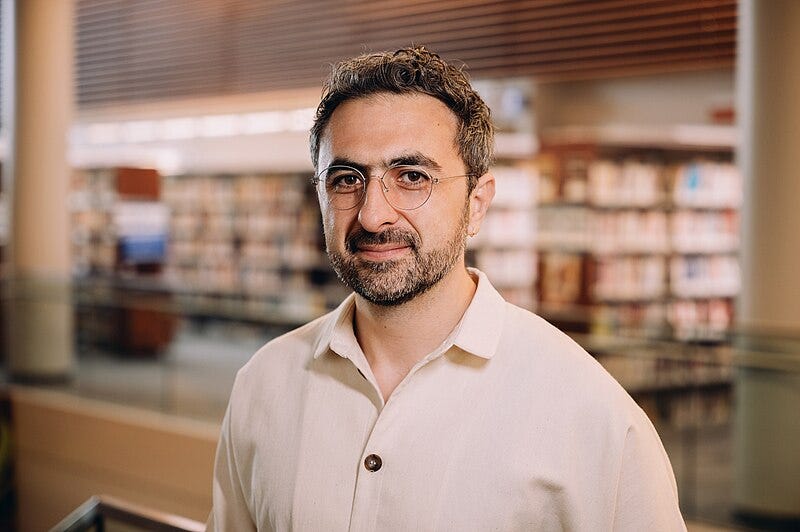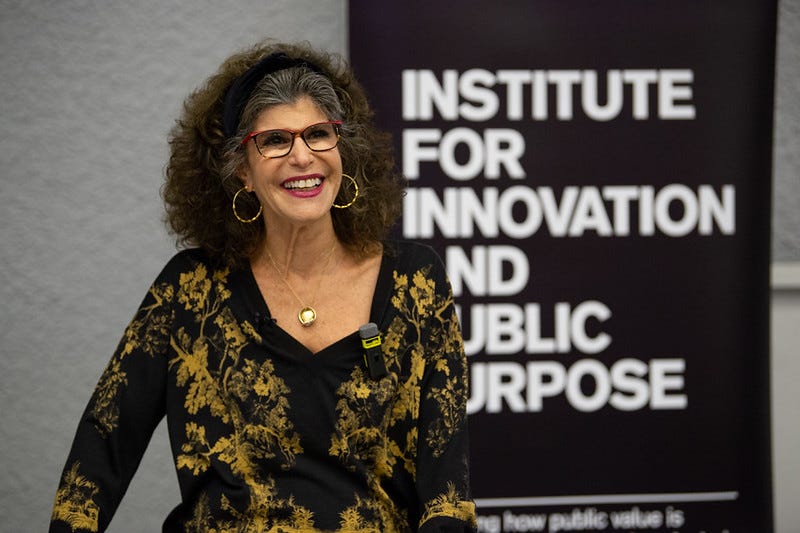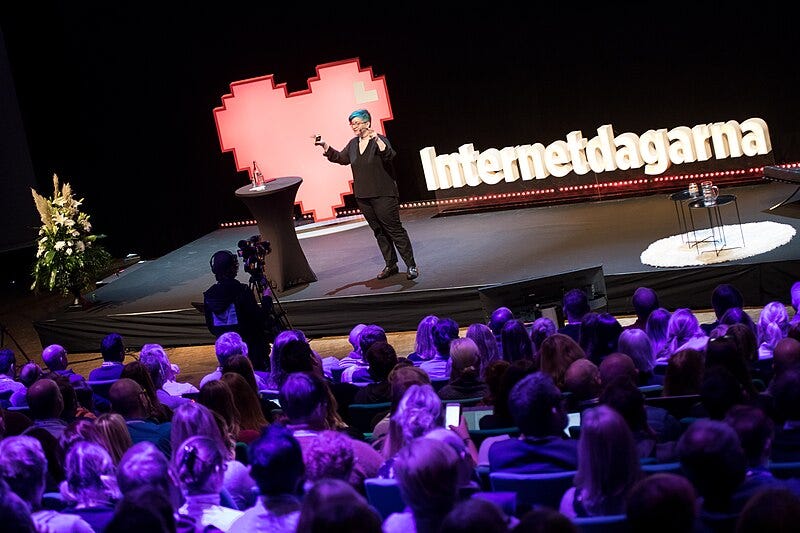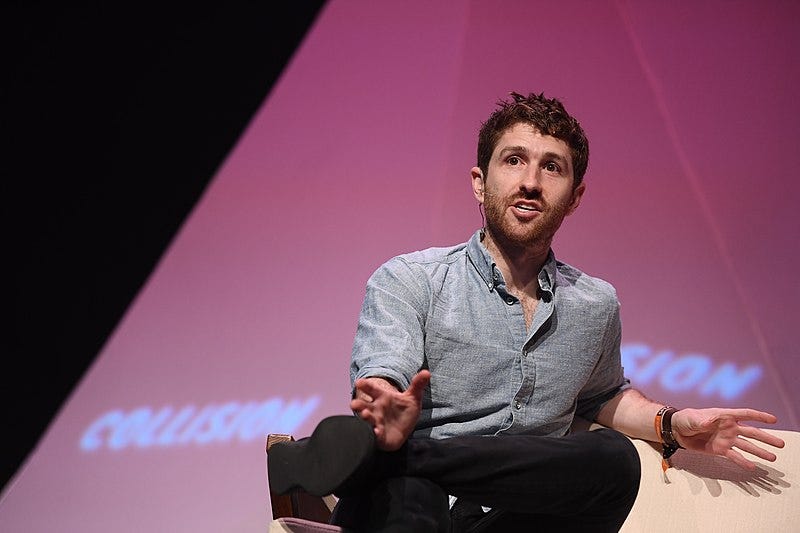Can gamification make the user experience of advanced 3D modeling software easy to learn?
Navigating risks and opportunities in a rapidly changing world.

We live in an era fueled by disruptive innovation. Over the past two decades, we have seen a remarkable evolution of technologies that have transformed the way we live, work, and interact with each other.
From the rise of smartphones to the advancement of artificial intelligence and the Internet of Things, these technologies have brought both unprecedented opportunities and significant risks. While innovation has opened up new possibilities, it has also raised concerns about privacy, security, and ethics.
The Next Wave
Mustafa Suleyman, CEO of Microsoft AI and co-founder of DeepMind, describes the evolution of technologies and explains the risks that rapidly evolving technologies pose to the global order in his book “The Coming Wave: Technology, Power, and the Twenty-first Century’s Greatest Dilemma”.

According to the author, we are about to cross a critical threshold in the history of our species.
Humanity has frequently faced transformative waves that have revolutionized the way we live and work. Whether it’s the invention of the wheel, electricity, or the steam engine, each wave initially brought uncertainty, but followed a similar pattern: it became more affordable and user-friendly, eventually spreading widely.
The upcoming wave is powered by AI, and it will bring about changes at a faster pace than previous waves. So we need to figure out how to handle the results of technology applications, and how to control the impact of the next wave.
Suleyman explained that regulation is not enough because regulators can only see what’s already there, they can’t predict new things. Unfortunately, the upcoming wave will be full of contradictions, we have to be ready to manage multiple trajectories at the same time.
More opportunities, more contradictions
Regulators and governments are grappling with contradictions, while innovation raises questions about the tension between risk and opportunity.
In his famous speech from The Great Dictator, Charlie Chaplin said:
“We have developed speed, but we have shut ourselves in. Machinery that gives abundance has left us in want.”

This contrast between abundance and unmet needs is a common occurrence in various markets. Numerous technologies have unleashed enormous business opportunities while creating unprecedented problems that may have been unimaginable a few years ago.
In her book “The Age of Surveillance Capitalism”, Shoshana Zuboff delves deeply into the mechanisms through which big tech companies have harnessed immense value through data surveillance. These companies operate within a new economic law that claims human experience as a free resource and a hidden commercial practice.

What drove the adoption of surveillance capitalism was the fundamental shift in people’s interaction with technology. People are open to providing data to get free services or digital products, in this context every action a user performs is considered a signal to be analyzed and fed back into the system. Unfortunately, some companies have made a big mistake with behavioral data, they don’t get data to understand behavior, they get data to change it.
The use of data to change behavior is explored in depth by Cathy O’Neil in her book “Weapons of Math Destruction”. O’Neil analyzed the social impact of algorithms and how the use of big data can lead to decisions that harm the poor, reinforce racism, and increase inequality.

O’Neil argues that algorithms wield such power that, without regulation, they can perpetuate and amplify existing biases in the data. Many algorithms are used in secret, making it difficult to understand their decision-making processes. This lack of transparency can lead to flawed decisions and a loss of trust in the institutions or companies that rely on these models. O’Neil emphasizes the need for human regulation and accountability in both the development and use of these models.
The context outlined by Shoshana Zuboff and Cathy O’Neil is the consequence of unprecedented technology adoption and the misuse of mathematical models.
Sociologist and philosopher Zygmunt Bauman coined the term “liquid surveillance” to illustrate the fluid and pervasive nature of contemporary surveillance systems, amplified by technology.

In exploring the intersection of technological development and ethical issues, Bauman described a scenario that highlights the dynamic, flexible, and often invisible nature of surveillance in the digital age. This challenges conventional views of surveillance as a rigid and overt means of control.
According to Bauman, the most significant shift in surveillance systems has been from the elimination of choice to the manipulation of choice.
Shoshana Zuboff, Cathy O’Neil, and Zygmunt Bauman recognize the power of technology, but they all raise ethical questions. In a deeply interconnected and complex world, it’s not easy to predict the outcome of our actions, making it really hard to set rules.
Initiatives
Several promising actions are being taken to address ethical concerns in technology. Governments, nonprofit organizations, and global alliances have established regulations, guidelines, and standards.
Governments

The European Commission is working to ensure that the necessary measures are taken for ethical and sustainable development. Here are some of the latest major initiatives:
- Industry 5.0: This initiative envisions a future for European industry that is not only efficient and productive, but also sustainable, human-centered, and resilient;
- Green Deal: This initiative aims to make Europe climate-neutral by 2050;
- AI Act: This initiative aims to regulate the development and use of artificial intelligence.
Nonprofits Organizations
The Center for Humane Technology is a non-profit organization founded in 2018 by Tristan Harris with the following mission:
“Our mission is to align technology with humanity’s best interests. We envision a world with technology that respects our attention, improves our well-being, and strengthens communities.”

They aim to examine the impact of technology on our lives and advocate for a better way of designing digital solutions. The organization has published a set of policies and principles that can guide designers, businesses, and even lawmakers.
Alliances
The G20 Global Smart Cities Alliance aims to establish principles for the responsible use of smart city technologies. The Alliance collaborates with local, regional, and national governments, along with private sector partners and city residents.
Convening experts from around the world, the Alliance works together to develop a policy roadmap for responsible, ethical smart cities based on the following principles:
- Equity, inclusivity, and social impact;
- Security and resilience;
- Privacy and transparency;
- Openness and interpretability;
- Operational and financial sustainability.
The right way
All the initiatives mentioned earlier represent important steps toward regulating technology in line with ethical principles and values. However, ongoing activities between public and private organizations are essential to address emerging ethical challenges.
As Antoine de Saint-Exupéry said: “The machine does not isolate man from the great problems of nature but plunges him more deeply into them.”
With everything around us, from cars to cities, becoming increasingly connected, the big question is how to manage knowledge, power, and authority about data to ensure that technology serves the greater good while respecting individual rights and dignity.
Sources
- The Age of Surveillance Capitalism: The Fight for a Human Future at the New Frontier of Power — Shoshana Zuboff — link
- Weapons of Math Destruction: How Big Data Increases Inequality and Threatens Democracy — Cathy O’Neil — link
- Center for Humane Technology — Official website — link
- The Coming Wave: Technology, Power, and the Twenty-first Century’s Greatest Dilemma — Mustafa Suleyman, Michael Bhaskar — link
- Liquid Surveillance — Zygmunt Bauman — link
- Ethics by Design: An Organizational Approach to responsible use of Technology — World Economic Forum — link
- Governing Smart Cities: Use Cases for Urban Transformation — World Economic Forum — link
An ethical dilemma for innovation was originally published in UX Collective on Medium, where people are continuing the conversation by highlighting and responding to this story.


Leave a Reply